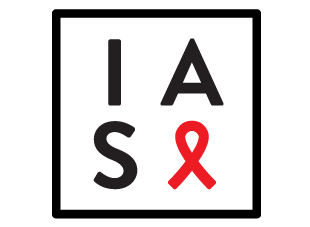
Consultant Physician
Director of HIV Services
Department of HIV and Genitourinary Medicine
Chelsea and Westminster Hospital NHS Foundation Trust
London, United Kingdom
Anton L. Pozniak MD, FRCP, has disclosed that he has received consulting fees from Gilead Sciences, Janssen, Merck, and ViiV Healthcare.
By Anton L. Pozniak, MD, FRCP, IAS President
The biannual conference presented by the International AIDS Society (IAS) is one of the leading scientific conferences in the HIV field. In total, the upcoming IAS 2019 meeting in Mexico City, Mexico, will feature more than 1100 accepted abstracts, with as many as 6000 delegates expected to attend. This should be an exciting event for all participants and an important global convening of the HIV scientific community. Among the many topics that will be covered, here is my take on key new data that will be presented.
Novel ARVs
IAS 2019 will include the Week 96 safety and efficacy data from the phase III BRIGHTE study, which is investigating the novel HIV-1 attachment inhibitor prodrug fostemsavir in heavily treatment–experienced participants living with multidrug resistant HIV. These long-term outcomes data will be crucial to our understanding of how to treat this population. In addition, we have been awaiting data on MK-8591, a long-acting nucleoside reverse transcriptase translocation inhibitor, and we will see the 48-week data on its tolerability, safety, and efficacy when combined with doravirine and lamivudine (3TC) in treatment-naive adults. Finally, GS-6207, a first-in-class, long-acting, HIV capsid inhibitor, is also a new drug of interest. The safety and antiviral activity data over 10 days following a single SC dose of GS-6207 in people living with HIV will be presented.
ARV Trials
There will be several interesting studies presented on first-line ART. The durability and long-term efficacy of 2 drug dolutegravir (DTG)-based regimens are important, as these are now being prescribed for ARV-naive people. The Week 96 results from the GEMINI studies of DTG plus 3TC in ARV-naive adults will provide this important information.
In addition, are there advantages with using tenofovir alafenamide (TAF) over tenofovir disoproxil fumarate (TDF) as first-line treatment in low and middle income countries? This question will be addressed by data presented from the phase III ADVANCE trial, which compares TAF/DTG/emtricitabine (FTC), TDF/DTG/FTC, and TDF/FTC/efavirenz (EFV) for first-line treatment in South Africa.
There will also be data on ART switch and simplification strategies. Previous data on switching to a 2-drug DTG regimen when patients achieve an undetectable HIV-1 RNA are limited to relatively small studies. At IAS 2019, we will see new data through Week 24 from the large TANGO study that will suggest switching to a DTG plus 3TC fixed-dose combination is noninferior to continuing a TAF-based regimen in maintaining virologic suppression in these patients.
One method of ART simplification is the reduction of the number of doses required per week. Can ARVs given fewer than 7 days per week maintain viral suppression? The previously published FOTO study demonstrated that in select patients, EFV-based regimens could be given 5 days on with 2 days off and still maintain undetectability. At IAS 2019, we will see data from the phase III ANRS 170 QUATUOR study, which assesses a 4 out of 7 days maintenance strategy.
It will be interesting to see how much of this first-line and switch data will affect HIV guidelines and, particularly, if 2-drug regimens will become recommended and/or preferred strategies.
The proposed association between INSTIs and weight gain has little randomized trial data to support it. The NEAT 022 study demonstrated weight gain out to 48 weeks in individuals who switched to DTG compared with those who continued on PI-based treatment. We will now see data from 2 large, randomized phase III trials—the ADVANCE and NAMSAL trials—that will provide additional data on weight gain with INSTIs and/or TAF. In addition, these trials have enrolled a large number of black women, a demographic that may be at greater risk for weight gain on INSTIs.
Pregnancy and Neural Tube Defects
IAS 2019 will feature important data on the association of DTG with neural tube defects, including the next round of results from the Tsepamo study in Botswana, which first alerted the world to a possible link. Additional data from Botswana as well as data from Brazil, Uganda, and the Antiretroviral Pregnancy Registry will also be presented. Consequent to these data, we wait in anticipation for the new WHO treatment guidelines, which are aimed to be released during IAS 2019.
PrEP and Biomedical Prevention
Key new data on pre-exposure prophylaxis (PrEP) will also be presented. Of particular interest will be the updated results from the phase III DISCOVER trial comparing TAF with TDF for HIV PrEP. Is PrEP with TAF effective? Do the bone mineral density and renal function benefits of TAF as treatment in people with HIV also apply to TAF as PrEP in people without HIV?
Also, as the field moves toward new drug delivery systems, the results of the first human trial of MK-8591–eluting implants for HIV prophylaxis will be important.
In addition, there will be new data from studies investigating PrEP retention in various special populations, which will provide important information for programs to remain effective and sustainable.
HIV/TB Coinfection
IAS 2019 will be the stage for Week 48 data from the ANRS 12300 Reflate TB2 trial, a major study assessing virologic efficacy of raltegravir 400 mg BID vs EFV 600 mg QD, both in combination with TDF and 3TC, in adults with HIV infection and tuberculosis (TB). This study is a larger follow-up to ANRS 12 180 Reflate TB, which investigated 400-mg BID and 800-mg BID doses of raltegravir. These will be important data, as the best data we have to date in HIV/TB treatment support EFV as the preferred regimen, which globally has a diminishing role in treatment.
Cure
In addition to the major topic areas described above, there will also be a great deal of interesting basic science work presented.
In the cure arena, we will see safety and pharmacodynamic data for vesatolimod, an oral toll-like receptor 7 agonist that could be combined with neutralizing antibodies or a vaccine in future cure strategies.
Important advances are also being made in broadly neutralizing antibodies (bNAbs). The AIDS Clinical Trials Group will present data from a single-dose phase I study assessing safety and efficacy of the HIV-1 bNAbs VRC01LS or VRC07-523LS in adults with HIV infection, which will be important for the potential use of these antibodies in cure strategies.
I’m also looking forward to the results of the ASCENT study, which will provide data evaluating HIV vaccines.
Other Important Issues
There will be several sessions on implementation and prevention science. These sessions will include data from studies such as PopART, which assessed test-and-treat strategies in Africa, and other studies highlighting specific key populations. Of importance, there will also be special sessions discussing the HIV response in areas of conflict and in specific regions, including a discussion on how Latin America and the United States plan to end their HIV epidemics.
The goal of the IAS 2019 conference is to shape treatment and prevention strategies and pave the way for effective test-and-treat approaches. Overall, it will highlight inequality and stigma and be a catalyst for collaboration, innovation, and a sustainable response to the HIV epidemic.
As the meeting unfolds, remember to check the CCO Web site often for downloadable slidesets summarizing the data from these and other studies and plan to join us for a series of live Webinars hosted by expert faculty providing their take on the clinical implications of the data. After the meeting, look for more ClinicalThought™ commentaries featuring expert perspectives on integrating new data into practice.

Contact Clinical Care Options
For customer support please email: customersupport@cealliance.com
Mailing Address
Clinical Care Options, LLC
12001 Sunrise Valley Drive
Suite 300
Reston, VA 20191


You are now leaving the CCO site. The new destination site may have different terms of use and privacy policy.